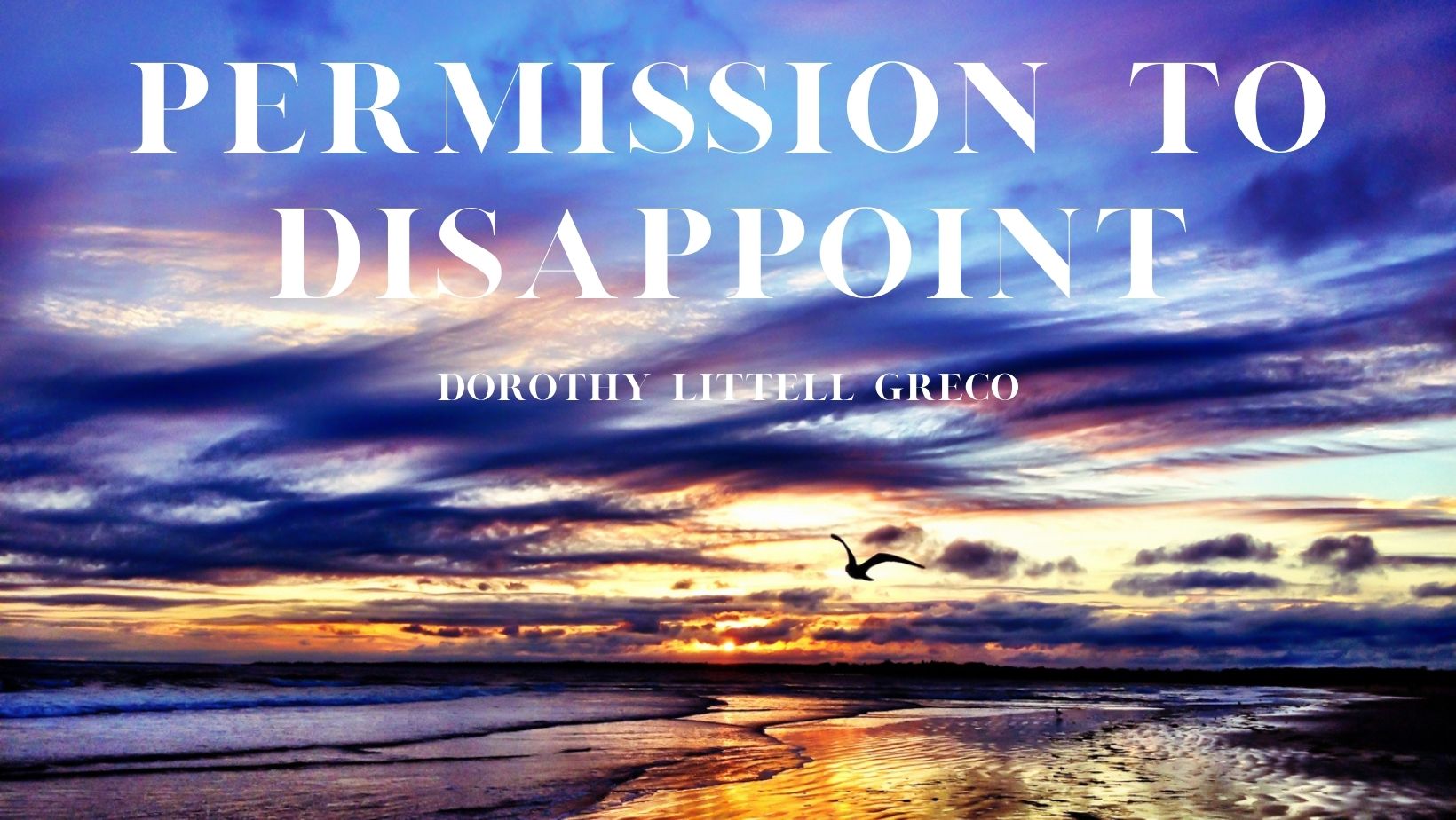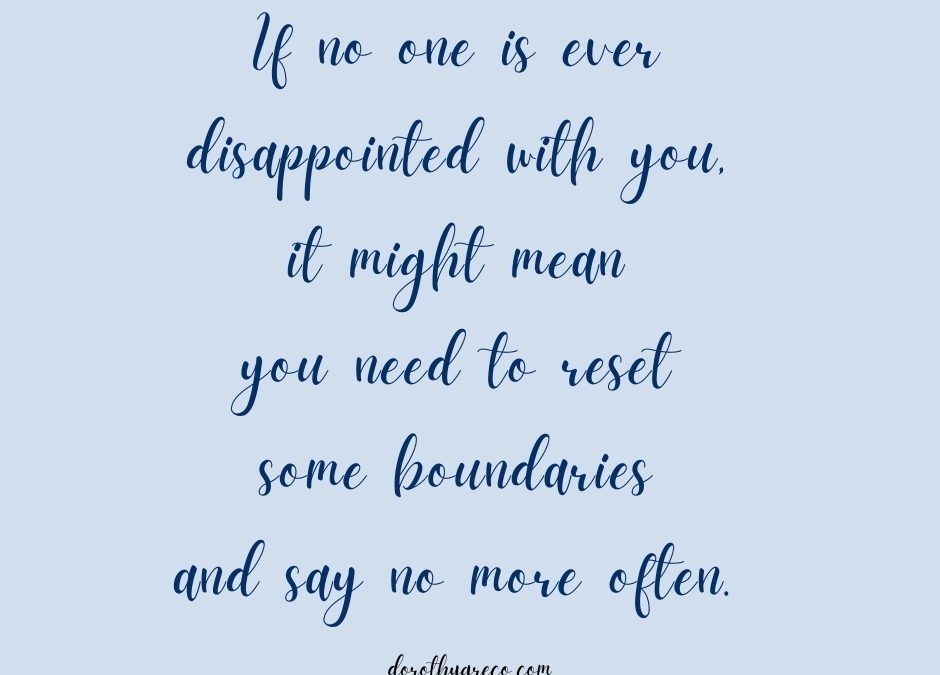
Earlier in life, disappointing others was simply unacceptable. Whether it was my high school or college teammates, my employers, my husband, and later, my sons, I perceived letting others down as a moral defect. It ranked up there with lying and stealing.
I’m not a brain surgeon so the majority of my mistakes were not highly consequential. Never-the-less, burning the rice, botching a play-date, or forgetting a friend’s birthday all resulted in profound shame and brutal self-criticism.
I can’t say with any confidence when or why this warped belief system took over. I’m guessing it had something to do with being highly sensitive and having a critical parent. Looking back on my childhood, my accomplishments hid in the shadow of my mistakes. I thought that if I could only anticipate what everyone needed or wanted from me, then I could avoid disappointing them. One of the many problems with this false construct was that the more I gave, the more people wanted. Over the years, pleasing people brought me affirmation and counterfeit comfort. It became a form of addiction.
Decades of co-dependence, over responsibility, and trying to earn love led to resentment, exhaustion, and finally, serious health issues. My body simply could not tolerate the relentless demands I placed on it or the lack of grace I extended to myself.
I think women are particularly vulnerable to this dilemma. There’s tremendous pressure to look perpetually twenty-seven while exhibiting a narrow range of emotions (namely cheerful optimism) as we bath our aging parents, feed our families, take the dog to the vet, etc. We’re not allowed to be tired or angry. If we set reasonable boundaries—No, I cannot serve in the nursery. I’m already volunteering ten hours a week—our motivation or our attitudes get challenged. (Typically by someone much younger who has not yet faced a crisis of limitations.)
I now know that if I’m not regularly disappointing people, my boundaries probably need to be adjusted.
For recovering perfectionists like me, acknowledging that we cannot meet everyone’s needs is both crushing and liberating. Crushing because our false self gets unceremoniously deconstructed leaving us insecure about how to respond to needs, and liberating because there are no more sharp hooks pulling us in disparate directions.
Part of the recovery process is being honest about our limitations. Whether or not we want to admit it, we are all limited people. Even professional athletes can only run so fast, throw so far, or jump so high. Yes, we can endeavor to grow but we also must have sufficient self-awareness to be able to say, I’m sorry but I’m not able to do that for you. (To be clear, lack of enjoyment is not necessarily an accurate predictor of our limitations. I’ve never enjoyed changing diapers or cleaning bathrooms but I’ve done both for decades.) Once we determine our limitations, we must communicate them so that others can adjust their expectations of us.
Disappointing people still makes me wince. There are times when I revert to my former people-pleasing behavior or, far more common, battle guilt for saying no. But as I learn to see myself as a competent, generous woman who is simultaneously imperfect and limited, shoulds no longer dictate my days. I’ve learned that a well-placed no not only protects my physical and mental health—it brings clarity and freedom.
You can read more about this topic in Making Marriage Beautiful or Marriage in the Middle.

